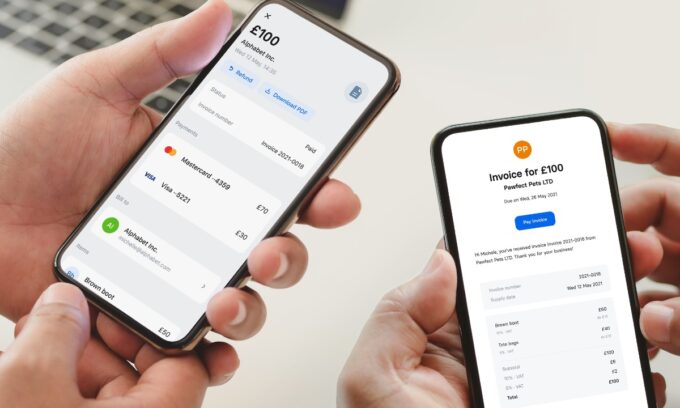Trying to manually handle creating invoices, following up on payments, and understanding what is happening in your business finances can take a lot of work for business owners today. But old-fashioned financial processes make it very hard for companies to keep growing. The good news is that new online billing apps can significantly help. These smart apps easily make invoices, see customers’ debts, connect accounting information, and check payment patterns. This lets small companies see where they lose money or have delays.
By making the tough finance parts of running a business much easier automatically, billing apps help owners grow faster. The data they provide acts like a guide showing the way forward. Read on to learn more.
An Overview of Bill Book App

Bill book apps help small businesses by digitising and automating many financial tasks. Instead of heavy accounting software, these lightweight mobile apps allow anyone to easily create, organise, and share invoices using their phone. Useful features include:
- Snapping a photo of a handwritten receipt to turn it into a proper invoice.
- Scheduling recurring bills for regular customers.
- Tracking unpaid amounts.
- Sending payment reminders.
By streamlining billing and collecting money digitally, owners can grow their companies without administrative hassles. The right solution optimises cash flow on the go.
Ways in Which Billing Apps Help Businesses

I. Accelerate Invoicing with Mobile Creation Capabilities
Billing velocity accelerates income velocity. But manual invoice preparation gets postponed by daily fires demanding attention, especially when relying on cumbersome desktop software. Billbook apps instead simplify invoicing directly through smartphones, allowing rapid generation during client meetings, sales calls or even transit commutes.
Templates, calculator integration, attachments and signature requests minimise administrative delays between service delivery and payment. Your finances don’t have to play catchup anymore simply through digitising issuance.
II. Prevent Revenue Leakage Via Proactive Payment Reminders
Without systematic circulation of pending dues, overdue invoices inevitably fall through the cracks once money tightens. Custom reminder rules within billing apps empower configuring automated nudges when outstanding payments cross red line ageing milestones personalised to customer profiles.
Gently worded notifications that responsively escalate tone as delays continue to make it easier to collect from tardy accounts without directly ruffling relations during turbulent times. Let automation politely handle the dirty work.
III. Pinpoint Money Movement Anomalies Using Intelligence
Mastering commercial intuition and separating prudent risks from profitable gambles comes with experience. Fintech now accelerates that learning curve. Embedded analytics within billbook apps uncover trends around historical collection cycles, seasonality impacts, segment-level payment delays and more to shape smarter decisions using cold hard data.
Rather than flying blind on cash availability estimates, intelligence helps forecast with greater credibility to guide strategic growth investments and tactical resource allocations using empirical insights.
IV. Strengthen Credibility via Integrations with Formal Systems
Increasingly, scaling enterprises expect business partners to meet minimum digital fluency across operational facets. Integrating bill book functionalities like accounts receivables and customer contact databases with accounting platforms centralises access to verified financial records, building trust.
Data unification also prevents tedious duplicate entries across disconnected systems, saving time. Shared clarity fosters better collective decision-making and lightens looming audit anxieties.
In essence, billbook apps sustainably nurture business health by:
- Accelerating cash velocity
- Safeguarding revenue leakage
- Bolstering forecasting credibility using data
- Structuring financial validity and transparency
How to Choose a Bill Book App

1. Seamless Efficiency
Look for a billbook app that easily generates branded, professional invoices using your phone without extensive typing. Templates, calculator/number pad inputs, and snap photo uploads create seamless experiences versus tackling everything strictly through cumbersome desktop programs. Such tools feel naturally integrated into modern business motion.
2. Time-Saving Automation
Automated reminders when client balances run past due help collect outstanding amounts more promptly versus manual tracking across paper records that rely fully on human memory. Rules-driven notifications add systematic order, freeing entrepreneurs to grow ventures.
3. Data Security & Accessibility
App credibility hinges on guarding sensitive commercial data like client details and account balances with bank-level encryption both in transmission and cloud backups, allowing read-only access securely across devices anytime, anywhere. Data worth collecting is worth protecting in the digital age.
4. Real-time Insights
Invoice generation satisfies only basic accounting needs. Advanced analytics delivering actionable visibility into metrics like top paying customers, seasonal collection gaps, average recurring revenue values, etc., supplements entrepreneurial intuition on cash health to guide strategic and tactical decisions.
5. Dedicated Support
Adoption success requires responsive assistance when questions arise on configuration nuances or reconciling information flows across connected systems. Seek domestic providers’ staffing phone, email, and chat channels to address implementation pain points before they become deterrents.
Future Trends in Online Billing Technology

The online billing technology segment continues to experience robust innovation catering to small and medium businesses as extensive venture investment accelerates advanced capabilities. Expect further consolidation as integration strengthens between billing tools, accounting software, payment systems, customer management platforms, and project administration applications via open API ecosystems, enabling seamless data flows.
Additionally, specialisation software for customised industry verticals like healthcare, transportation, and non-profit sectors should gain traction by tuning templates, workflows and analytics to address market-specific requirements.
For external stakeholders, self-service customer portals will likely expand, allowing clients real-time visibility into outstanding invoices, balances, and flexible remote settlement options.
While automation already alleviates considerable administrative burdens today, sizable headroom remains for billing technology refinement by user experience design principles to optimise cash flow management for Lean Finance teams over the coming decade.
The Bottom Line
Businesses need to keep improving to match what consumers want. Customers expect positive and steady service, including behind the scenes. If companies change, they will quickly stay caught up on competitors.
Billing software tools create the structures to enable smooth operations in two key ways. First, they allow consistent processes that businesses can count on. Second, they create financial transparency through data now and in the future.
As solutions get more flexible and affordable, even smaller or newer companies can benefit. Furthermore, ambitious businesses should take this moment to modernise. Using billing software lays the groundwork today that sets them up for better decisions and growth in the coming years.











